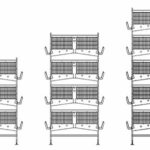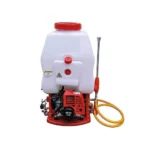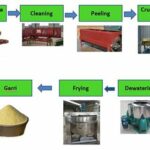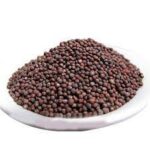Since time immemorial, farming has been an essential aspect of our lives. It is one of the oldest means of livelihood known to man and practised throughout the world. Gone are the days when people considered farming only as a peasant operation. Nowadays, the scope has gone beyond just subsistence to commercial farming. People are now encouraged to use advanced tools and technologies in their farming activities. Farming is a profitable venture when handled correctly. It requires a lot of time and attention. Here are five basic planting tips that everyone venturing into crop farming should know.
- Select the Right Farm Location

Of all the basic planting tips, choosing your farm location is the most paramount. It is important to remember that soil types vary according to location, and diverse soil types best suit different crops. For instance, some farm locations have clay-loam soil, which is ideal for planting rice but not recommended for cultivating cowpeas. At the same time, sandy-loam, the preferred soil type for growing cowpeas, may not support rice growth. So, a good farm location should have soils suited for the crop you want to plant.
It is also crucial to know the history of the land. If possible, you should also know the history of pests and diseases in the said area. Access to road and water is also vital as this can determine how well the farm performs. Crops need water for the best growth and development. As such, access to water should be one of the main factors to consider in citing your farmland. Where funds are available, you can carry out a soil test to know the level of nutrients in the soil. Doing this may guide the choice of crops suited for the farm soil and the fertilizers you can use.
- Identify Your Market

As any business owner knows, the end goal of any enterprise is to make a profit. Crops are perishable that is why identifying your market is one of the most important planting tips you should follow. It would be so disappointing if, after planting and harvesting, farmers find it hard to sell off their produce. It means farmers may have to watch their crops spoil. That is, farmers may be forced to sell them for a price lower than they should attract. To prevent this, every farmer should identify the market he intends to sell his products. It is best to ensure that you sell your products as soon as possible. That is, at a time when they can still command a reasonable fee.
The sale of agricultural products connects people through a series of activities. Thus, becomes a vital part of the economy. Markets are therefore important because they serve as a medium by which farmers can generate income from their crops and at the same time develop rural-market linkage. Nearness to these markets is an essential factor to consider as this reduces the risk associated with accidents that can occur while the goods are in transit.
- Find the Best Varieties of Seeds For Your Location
It is important to know that seeds have different varieties. A seed variety refers to a subdivision of a particular seed with different characteristics. Seed breeders are constantly working to ensure they improve on the existing characteristics of seeds. This helps to improve characteristics such as tolerance to diseases and pests, drought tolerance, higher yields etc. A tomato variety may have a determinate and indeterminate type and these two types have different characteristics and growth patterns.
It is therefore very important to know the varieties that suit the location where the farm is to be located as this would help manage the farmer’s expectations and also enhance the productivity of the farm.
Conduct your research on the varieties of the seeds and know the best practices attached to each variety as it suits your location.
There are seed varieties that are bred particularly for certain locations. For instance, most of the cowpea seeds that Northern Nigeria cultivate have been bred to have drought-tolerant traits.
This helps them adapt to life in regions that have a low level of rainfall.
- Always Use Certified Seeds
Using certified seeds come with its advantages. This is also one of the basic planting tips every crop farmer should follow. We recommend using seeds that are certified because they have passed through breeding programs and are monitored closely before being released. First, it is important to note that certified seeds are clean seeds that are free from weeds and other contaminants. They have been treated against pathogens that can damage the seeds. That is why most seeds have colours to make them look different from the original colours of the consumable grains. Using certified seeds also guarantees varietal purity. This means that the seeds have been collected from plants with the same characteristics and should produce similar qualities when planted.
Using certified seeds also guarantees traceability because the source is known. Also, using certified seeds guarantees that the farmer gets seeds with improved traits such as pest resistance, improved yields and drought tolerance.
- Let the Experts Guide You
Pests refer to any biological entity whose actions or activities interfere with the interest of man, cause damage that results in economic loss and their actions warrant effective control measures. Pests come in the form of insects e.g grasshoppers and whiteflies. Weeds are also serious pests of crops and in the absence of effective control e.g Striga spp, they can reduce the harvest of crops by a significant level. Pathogens such as bacteria, fungi, viruses are also serious pests that cause serious damage to crops. Rodents such as the grass cutter and birds like weaver birds also cause significant damages to crops and reduce their productivity.
Consult an expert to enlighten you on diseases and pests of crops and how best to manage them.
It is best to always consult experts that have the skills in the art of managing and controlling these pests. This helps to maximize the productivity of the farm. A major mistake most farmers make is trying to consult these pest control experts after the pests have attacked the farm. At this point, it may be impossible to salvage anything from the farm. Ensure you consult pest control experts during the planning phase of the farm. This would help in managing the expectations of the farmer and increasing the productivity of the farm.
These basic planting tips work well for farmers in every part of the world and they will help you too. But if you have any further questions, please ask in the comment below! Happy planting!














